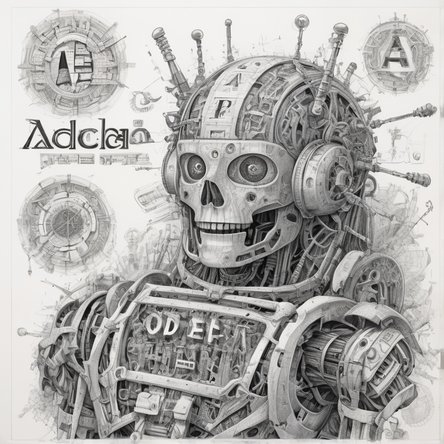Understanding CAPTCHAs
CAPTCHA, which stands for Completely Automated Public Turing test to tell Computers and Humans Apart, is a tool used to determine whether the user of a website is a human or a computer. This technology is crucial in combating automated bots that can cause harm to websites by spamming forms, scraping data, and performing brute force attacks. CAPTCHAs are an essential component of online security, safeguarding websites and ensuring that only legitimate users gain access.
The Evolution of CAPTCHAs
Since their inception in the early 2000s, CAPTCHAs have evolved significantly. The earliest versions were simple text-based tests, requiring users to type distorted letters or numbers. As bots became more sophisticated, so did CAPTCHAs. Modern CAPTCHAs often involve more complex tasks, such as identifying objects in images or solving puzzles. This evolution has been driven by the need to stay ahead of automated systems and provide a seamless user experience while maintaining security.
Types of CAPTCHAs
- Text-based CAPTCHAs: These are the most traditional form, where users are presented with distorted text that they must decipher and input correctly. Despite being effective, these can sometimes be difficult for humans to read, leading to frustration.
- Image-based CAPTCHAs: These require users to identify objects within a set of images. For example, users might be asked to click on all images containing a specific object, such as a car or a traffic light. This method leverages the human ability to recognize patterns and objects better than bots.
- Audio CAPTCHAs: For accessibility purposes, audio CAPTCHAs are available, presenting a series of spoken numbers or letters that the user must type in. This helps users with visual impairments but can also be challenging for those with hearing difficulties.
- Mathematical CAPTCHAs: These present a simple math problem that the user must solve. While straightforward, they are effective in distinguishing humans from bots, as they rely on basic arithmetic that is simple for humans but not necessarily for bots.
- Behavioral CAPTCHAs: These observe the user's behavior, such as mouse movements or keystroke dynamics, to determine if the activity is human-like. This form of CAPTCHA is often invisible to the user and works in the background, providing a seamless experience while maintaining security.
The Role of CAPTCHA Makers
CAPTCHA makers are tools or services that allow website owners to integrate CAPTCHA systems into their sites. These makers provide various options for CAPTCHA types and customization to fit the specific needs of the website. A good CAPTCHA maker offers ease of integration, a variety of CAPTCHA formats, and customization options to align with the website's design and user experience.
Key Features of a Good CAPTCHA Maker
- User-friendly Interface: A CAPTCHA maker should have an intuitive interface that allows website owners to easily select and customize their CAPTCHA solutions. This includes options for text, image, audio, and behavioral CAPTCHAs.
- Customizability: Website owners should be able to customize the appearance and behavior of the CAPTCHA to match their site’s aesthetics and requirements. This includes adjusting the difficulty level, color schemes, and language options.
- Accessibility Options: A CAPTCHA maker must provide solutions that cater to all users, including those with disabilities. This includes audio CAPTCHAs and other accessibility features to ensure everyone can use the website without barriers.
- Security: The primary purpose of a CAPTCHA is to enhance security. Therefore, a good CAPTCHA maker should offer robust, up-to-date security features that can thwart the latest bot threats and provide detailed analytics on attempted breaches.
- Integration Support: Easy integration with various platforms and technologies is crucial. Whether the website is built on WordPress, Joomla, or a custom CMS, the CAPTCHA maker should provide plugins, APIs, and detailed documentation to facilitate seamless integration.
Benefits of Using CAPTCHAs
- Enhanced Security: By preventing automated bots from accessing websites, CAPTCHAs protect against a range of malicious activities, including spamming, data scraping, and brute force attacks.
- Improved User Experience: Modern CAPTCHAs are designed to be less intrusive and more user-friendly, ensuring that legitimate users can easily pass the tests while keeping bots at bay.
- Protection of Resources: CAPTCHAs help conserve server resources by blocking automated traffic, which can overload servers and degrade website performance.
- Data Integrity: By filtering out bot traffic, CAPTCHAs help maintain the integrity of data collected from users, ensuring that form submissions, sign-ups, and other user interactions are genuine.
- Compliance with Regulations: Many industries are subject to regulations that require measures to prevent fraud and unauthorized access. Implementing CAPTCHAs can help websites comply with these requirements.
Challenges of CAPTCHAs
While CAPTCHAs are effective, they are not without challenges. Some users may find them difficult or frustrating, leading to potential abandonment of forms or transactions. Additionally, as bots become more sophisticated, they are better equipped to bypass simpler CAPTCHA systems, necessitating ongoing advancements in CAPTCHA technology.
The Future of CAPTCHAs
The future of CAPTCHAs lies in more seamless and intelligent solutions that balance security with user experience. Advances in machine learning and artificial intelligence are paving the way for CAPTCHAs that can adapt to emerging threats while minimizing user friction. Invisible CAPTCHAs that work behind the scenes, leveraging behavioral analysis and advanced pattern recognition, are likely to become more prevalent.
Conclusion
CAPTCHA makers play a crucial role in helping website owners implement effective security measures to protect against automated threats. By offering a range of customizable CAPTCHA solutions, these tools ensure that websites can stay secure while providing a positive user experience. As technology evolves, so too will CAPTCHAs, continually adapting to meet the challenges posed by ever-advancing bots. For website owners, choosing the right CAPTCHA maker is essential in maintaining the delicate balance between security and usability, ensuring their online platforms remain safe and accessible for all users.


